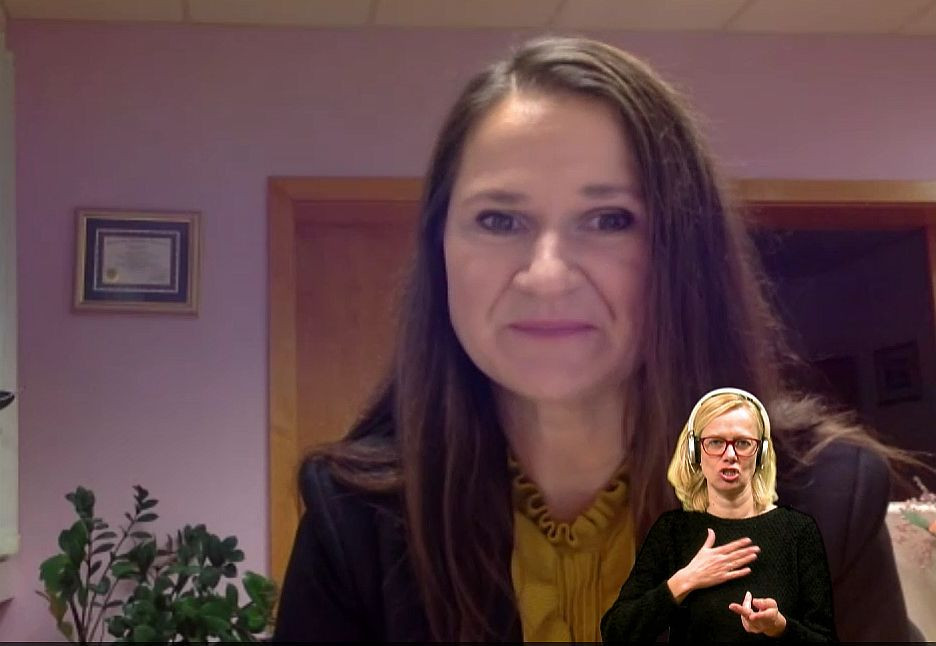By: P.T., Source: gov.si
The press conference on the current COVID-19 situation was attended by Vesna Vodišek Razboršek, director of the Šentjur retirement home (DSO), and psychologist, Andreja Poljanec.
DSO Šentjur is a medium-sized retirement home with 167 residents, as described by Mrs Vodišek Razboršek. They were faced with the outbreak of the virus on 23 October, when a resident returned from a check-up in hospital, where he was infected with the virus. They established a red zone a couple of days later. 7 residents have been cured to this day, 23 residents remain positive. 3 were hospitalised, and two died, one in the hospital and one in their retirement home. They are a municipality with a high share of citizens who have tested positive, and the number is still increasing. They therefore expected that their employees will sooner or later become infected in their home environment. Currently there are 11 employees who have tested positive, which is 10 percent of all employees. Due to risky contact and other sick leave, there is a 22 percent shortage of employees. They use rapid tests in their home, on the basis of which they have already identified one employee who tested positive but showed no symptoms; the so-called asymptomatic person who tested positive.
Mrs Poljanec talked about the retirees who cannot establish a positive relationship alone, which presents a very emotional challenge for the people around them. The environment usually recognises them as fed up; they see bad instead of good, and even when they make a call they provide bitter, harsh remarks or deep sighs, such as: “we are of no more use, so you will forget about me”, and similar onerous messages.
The psychologist therefore believes that the environment should become aware of what is happening with the elderly in their relationships; which emotions are predominant, what they miss, what they are angry about, distressed about, all these perceptions are valuable for the entire family. When we are aware of our feelings and we know the history of the relationships, then others accept unresponsiveness in an easier manner; they ignore unpleasant messages, they don’t take them seriously, and all this is the cornerstone on which a person may develop compassion. This requires overcoming old patterns and is a hard, but valuable task.
Many of the elderly may even advance in their relationships if others talk openly with them about these issues. It is a fact that we are most used to physical touch, visits, lunches, hugs. It is therefore more foreign to show closeness and affection with words that may caress a person. It is therefore a challenge to develop certain new skills, means, and to overcome any possible negative feelings.

